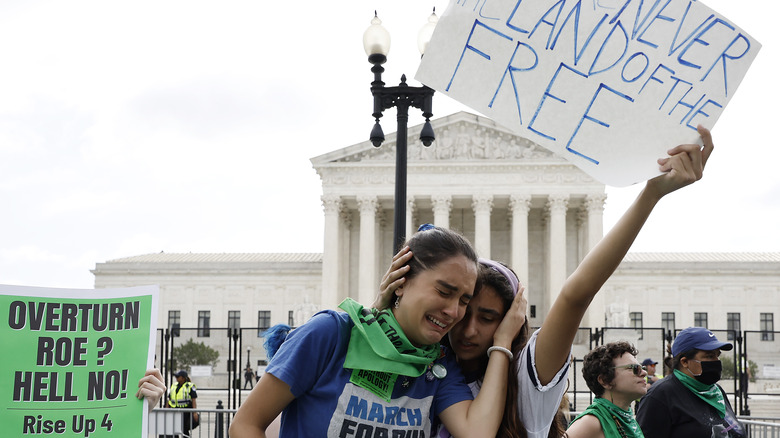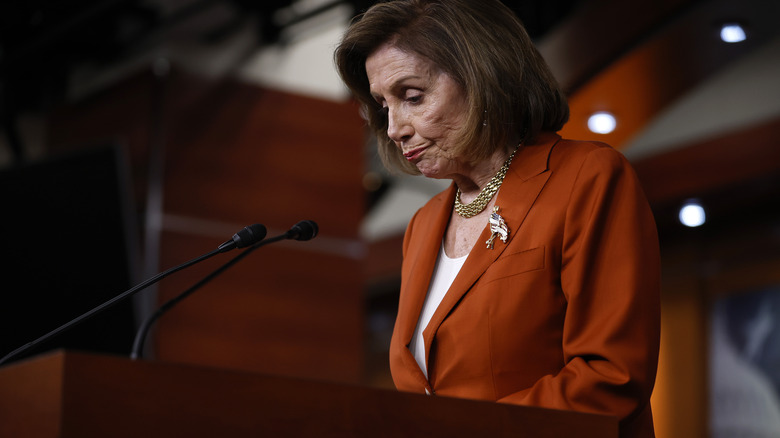The Supreme Court's Decision To Overturn Roe V. Wade Explained
On the first Monday in May when fashion and celebrity fans alike were tuning into the annual Met Gala, simultaneously, Politico published an astonishing leaked report that the Supreme Court had a drafted opinion to overturn the 1973 decision of Roe v. Wade. Since then, public political figures like New York representative Alexandria Ocasio-Cortez and the Squad have spoken out against the SCOTUS draft, making their disdain known. Both President Joe Biden and Vice President Kamala Harris openly opposed the leaked draft, saying that abortion in the United States is a matter of women's rights and should be written as such in the law.
Now, less than two months after news broke where celebrities vocalized their disdain toward the SCOTUS draft leak, authored by Justice Samuel Alito, the Supreme Court has made a decision in regards to Roe v. Wade, and it has some celebrating and some anxiously awaiting of what is yet to come.
The Supreme Court has overturned Roe v. Wade
On the morning of June 24, both pro-choice and pro-life abortion activists congregated outside of the Supreme Court in Washington, D.C. for news in regards to the landmark decision in regards to the 1973 ruling of Roe v. Wade, which protects pregnant people's access to abortion under the Constitution.
However, in a reversal decision, media outlets like CNN reported that the SCOTUS overturned Roe v. Wade in a court split 5-4 decision — with a 6-3 split supporting the specific Mississippi ban in question — determining that there is no constitutional right to have an abortion after having it written in law for nearly half a century. This now leaves states the opportunity to ban abortions, leaving those who will need abortions in the future to fend for themselves and seek refuge in states where the procedure will be legal.
This ruling now opens up a floodgate of issues, such as abortion travel costs in banned states, an inevitable influx to clinics in legal states, and the continued fight for women and trans people to have autonomy over their bodies.
ABC News reported that the country can anticipate at least 26 states to either severely restrict or ban abortions in lieu of the SCOTUS conservative-majority decision.

